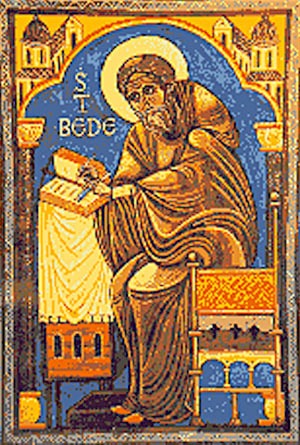p. 20
always followed by the process of dissolution. According to Spencer, however, disintegration took place only that reintegration might follow upon a higher level of being.
The chief position in the Italian school of philosophy should be awarded to Giordano Bruno, who, after enthusiastically accepting Copernicus’ theory that the sun is the center of the solar system, declared the sun to be a star and all the stars to be suns. In Bruno’s time the earth was regarded as the center of all creation. Consequently when he thus relegated the world and man to an obscure corner in space the effect was cataclysmic. For the heresy of affirming a multiplicity of universes and conceiving Cosmos to be so vast that no single creed could fill it, Bruno paid the forfeit of his life.
Vicoism is a philosophy based upon the conclusions of Giovanni Battista Vico, who held that God controls His world not miraculously but through natural law. The laws by which men rule themselves, Vico declared, issue from a spiritual source within mankind which is en rapport with the law of the Deity. Hence material law is of divine origin and reflects the dictates of the Spiritual Father. The philosophy of Ontologism developed by Vincenzo Gioberti (generally considered more as a theologian than a philosopher) posits God as the only being and the origin of all knowledge, knowledge being identical with Deity itself. God is consequently called Being; all other manifestations are existences. Truth is to be discovered through reflection upon this mystery.
The most important of modern Italian philosophers is Benedetto Croce, a Hegelian idealist. Croce conceives ideas to be the only reality. He is anti-theological in his viewpoints, does not believe in the immortality of the soul, and seeks to substitute ethics and aesthetics for religion. Among other branches of Italian philosophy should be mentioned Sensism (Sensationalism), which posits the sense perceptions as the sole channels for the reception of knowledge; Criticism, or the philosophy of accurate judgment; and Neo-Scholasticism, which is a revival of Thomism encouraged by the Roman Catholic Church.
The two outstanding schools of American philosophy are Transcendentalism and Pragmatism. Transcendentalism, exemplified in the writings of Ralph Waldo Emerson, emphasizes the power of the transcendental over the physical. Many of Emerson’s writings show pronounced Oriental influence, particularly his essays on the Oversoul and the Law of Compensation. The theory of Pragmatism, while not original with Professor William James, owes its widespread popularity as a philosophic tenet to his efforts. Pragmatism may be defined as the doctrine that the meaning and nature of things are to be discovered from consideration of their consequences. The true, according to James, “is only an expedient in the way of our thinking, just as ‘the right’ is only an expedient in the way of our behaving.” (See his Pragmatism.) John Dewey, the Instrumentalist, who applies the experimental attitude to all the aims of life, should be considered a commentator of James. To Dewey, growth and change are limitless and no ultimates are postulated. The long residence in America of George Santayana warrants the listing of this great Spaniard among the ranks of American philosophers. Defending himself with the shield of skepticism alike from the illusions of the senses and the cumulative errors of the ages, Santayana seeks to lead mankind into a more apprehending state denominated by him the life of reason.
(In addition to the authorities already quoted, in the preparation of the foregoing abstract of the main branches of philosophic thought the present writer has had recourse to Stanley’s History of Philosophy; Morell’s An Historical and Critical View of the Speculative Philosophy of Europe in the Nineteenth Century; Singer’s Modern Thinkers and Present Problems; Rand’s Modern Classical Philosophers; Windelband’s History of Philosophy; Perry’s Present Philosophical Tendencies; Hamilton’s Lectures on Metaphysics and Logic; and Durant’s The Story of Philosophy.)
Having thus traced the more or less sequential development of philosophic speculation from Thales to James and Bergson, it is now in order to direct the reader’s attention to the elements leading to and the circumstances attendant upon the genesis of philosophic thinking. Although the Hellenes proved themselves peculiarly responsive to the disciplines of philosophy, this science of sciences should not be considered indigenous to them. “Although some of the Grecians,” writes Thomas Stanley, “have challenged to their nation the original of philosophy, yet the more learned of them have acknowledged it [to be] derived from the East.” The magnificent institutions of Hindu, Chaldean, and Egyptian learning must be recognized as the actual source of Greek wisdom. The last was patterned after the shadow cast by the sanctuaries of Ellora, Ur, and Memphis upon the thought substance of a primitive people. Thales, Pythagoras, and Plato in their philosophic wanderings contacted many distant cults and brought back the lore of Egypt and the inscrutable Orient.

Moe is the founder of GnosticWarrior.com. He is a father, husband, author, martial arts black belt, and an expert in Gnosticism, the occult, and esotericism.


